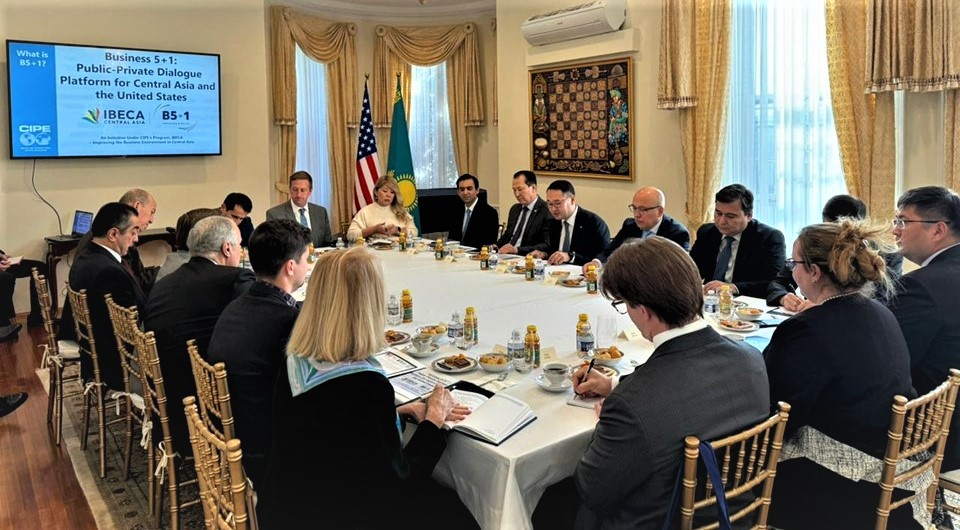ASTANA — To foster economic cooperation, Kazakhstan, Kyrgyzstan, Tajikistan, Turkmenistan, Uzbekistan, and the United States (US) inaugurated the B5+1 business platform on Nov. 16, announced the U.S. State Department’s Bureau of South and Central Asian Affairs (SCA) on its X official account.

The first B5+1 meeting will take place in Almaty in 2024. Photo credit: U.S. State Department’s Bureau of South and Central Asian Affairs (SCA) X official account.
The B5+1 initiative, operating within the framework of the existing C5+1 cooperation, will prioritize economic security by promoting regional economic integration, implementing reforms, fostering public-private dialogue, encouraging innovation, and attracting foreign investment to the member countries.
The inaugural meeting under the newly established business platform will take place in Almaty next year.
Director of the Center for Accountable Investment at the Center for International Private Enterprise Eric Hontz highlighted Central Asia as one of the most undercapitalized middle-income regions globally. Stressing the need for substantial investments, particularly in infrastructure such as railways and road connections in cities like Almaty, Bishkek, and Tashkent, Hontz welcomed the B5+1 business initiative. He underscored the potential for the US to assume a leading role in facilitating economic integration in the region.
President Kassym-Jomart Tokayev participated in the inaugural C5+1 summit, which brought together leaders from the five Central Asian nations and U.S. President Joe Biden this September. During the summit, Biden emphasized the importance of economic collaboration and announced the establishment of a new business platform under the C5+1 framework.
Acknowledging Central Asia’s aspirations for resilient and secure supply chains, Biden proposed a C5+1 Critical Minerals Dialogue to harness the region’s abundant mineral resources and promote critical mineral security.
Leaders also deliberated on strategies to enhance regional connectivity through the Trans-Caspian International Transport Route, commonly known as the Middle Corridor. Discussions included plans to attract investments into this corridor through the Partnership for Global Infrastructure and Investment, viewed as an essential tool for facilitating regional economic integration and bolstering resilience.
